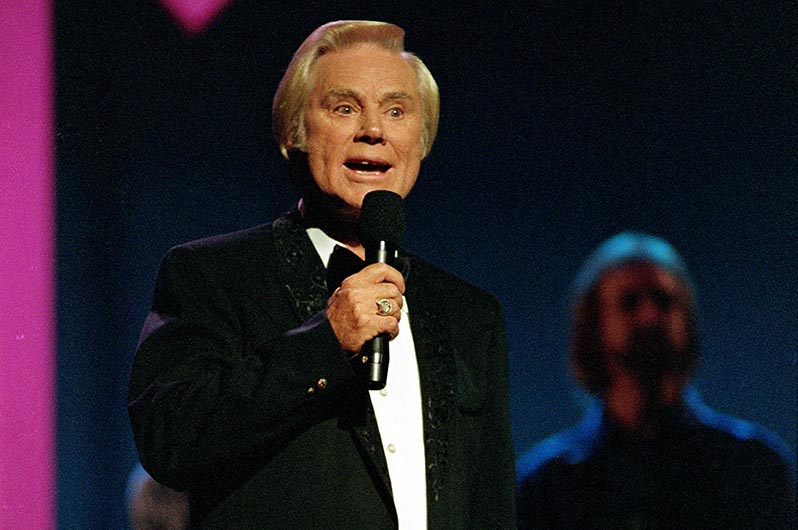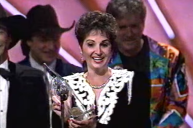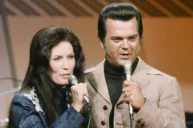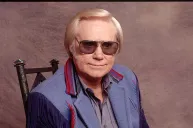When some of Nashville's finest talents pitched in on the final verse of George Jones' 1992 single "I Don't Need Your Rockin' Chair," they backed up the notion that the Possum's advanced age didn't mean that he needed "Geritol or Medicare." As a relevant recording artist, he proved he had more golden years ahead.
Videos by Wide Open Country
Recorded with producer Emory Gordy Jr. for the album Walls Can Fall, the Billy Yates, Frank Dycus, and Kerry Kurt Phillips co-write allowed Jones to poke fun at his age while sustaining a defiant attitude about his latter-career relevance. He turned 61 that year, but that didn't mean his career had to lose steam. He was gonna stand up and show everyone he wasn't going anywhere.
On the album, Vince Gill, Mark Chesnutt, Garth Brooks, Travis Tritt, Joe Diffie, Alan Jackson, Pam Tillis, T. Graham Brown, Patty Loveless, and Clint Black make their own personal statements about Jones' sustained greatness by appearing on the final verse. That's right; those are a lot of big names. It's the audio equivalent of Hank Williams Jr.'s "All My Rowdy Friends Are Coming Over Tonight" music video and other country music happenings where nearly every popular performer at the time got booked. The best live footage out there shows Chesnutt and Tracy Lawrence providing an alternate star-studded final chorus.
Read More: See George Jones' Touching Duet With His Young Daughter
Even with elite country singers on his side, Jones' grey hairs did seem to halt Music Row support for his new music. The singer responsible for "She Thinks I Still Care," "The Door," and "He Stopped Loving Her Today" cut an overlooked single that only reached number 34 on the Billboard chart. Wrongs by the same business practices targeted later in George Strait's "Kicked Outta Country" got righted when the song won the 1993 Country Music Association award for Vocal Event of the Year.
The single came from the same solid album as "Finally Friday" and Jones' cover of Merle Haggard's "The Bottle Let Me Down." In his 1996 autobiography I Lived to Tell It All, Jones reckoned that the album's lack of airplay and commercial success could be penned on a music business that puts its own legends out to pasture.




